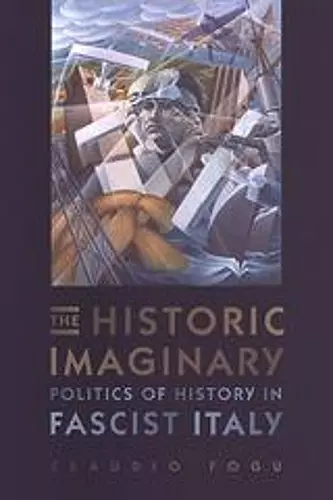The Historic Imaginary
Politics of History in Fascist Italy
Format:Hardback
Publisher:University of Toronto Press
Published:1st Nov '03
Currently unavailable, our supplier has not provided us a restock date

'This is a very interesting book that undertakes, in an original manner, the task of disentangling - while also demonstrating - the interconnectedness of modernism, historical imagination, and religious components in fascism ... Intellectually ambitious and broad in scope.' -- Simonetta Falasca-Zamponi, Department of Sociology, University of California, Santa Barbara
The author claims that his study of fascist historic culture opens the way to an understanding and re-evaluation of the historical relationship between the modernist critique of historical consciousness and the rise of post-modernist forms of temporality.
Focusing on both ritual and mass-visual representations of history in 1920s and 1930s Italy, The Historic Imaginary unveils how Italian Fascism sought to institutionalize a modernist culture of history. The study takes a new historicist and microhistorical approach to cultural-intellectual history, integrating theoretical tools of analysis acquired from visual-cultural studies, art history, linguistics, and reception theory in a sophisticated examination of visual modes of historical representation - from commemorations to monuments to exhibitions and mass-media - spanning the entire period of the Italian-fascist regime.
Claudio Fogu argues that the fascist historic imaginary was intellectually rooted in the actualist philosophy of history elaborated by Giovanni Gentile, culturally grounded in Latin-Catholic rhetorical codes, and aimed at overcoming both Marxist and liberal conceptions of the relationship between historical agency, representation, and consciousness. The book further proposes that this modernist vision of history was a core element of fascist ideology, encapsulated by the famous Mussolinian motto that "fascism makes history rather than writing it," and that its institutionalization constituted a key point of intersection between the fascist aesthetization and sacralization of politics. The author finally claims that his study of fascist historic culture opens the way to an understanding and re-evaluation of the historical relationship between the modernist critique of historical consciousness and the rise of post-modernist forms of temporality.
ISBN: 9780802087645
Dimensions: 235mm x 157mm x 26mm
Weight: 580g
288 pages